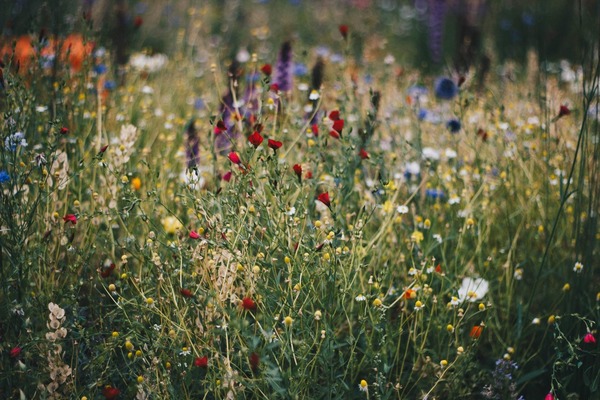Haskins’ in-house horticultural expert, Alasdair Urquhart, explains the benefits of embracing a different gardening approach. Naturalistic planting is a simple yet impactful approach that encourages gardeners to work with nature, rather than against it. Rooted in ecological principles, it offers a low maintenance way to create a garden that supports wildlife and thrives with less human intervention. Haskins Garden Centres’ in-house plant expert, Alasdair Urquhart, explains how this method can transform your outdoor space and even produce the most unexpected plants.
Alasdair says: “Naturalistic planting is about creating a garden that works in harmony with the local environment, embracing native plants, encouraging biodiversity, and allowing spaces to look a little looser or more relaxed than traditional borders.
“Once established, a more naturalistic garden requires less watering, feeding, and maintenance. By selecting plants that suit your soil and climate, you are working with what is already there rather than constantly trying to override it. Adding in a few complementary meadow-style plants or perennials helps to shape look and feel, and over time creates a garden that supports birds, insects, amphibians and more.
“One great way to take a naturalistic approach is by designating a patch of your garden to grow wild. Most soils contain a hidden seedbank of native plants just waiting for the right conditions. Simply reducing mowing or disturbance can reveal some surprising results. I have heard of gardeners who left a lawn untouched for six months and were amazed to see native wild orchids appear. You never quite know what might be waiting below the surface.
grow wild. Most soils contain a hidden seedbank of native plants just waiting for the right conditions. Simply reducing mowing or disturbance can reveal some surprising results. I have heard of gardeners who left a lawn untouched for six months and were amazed to see native wild orchids appear. You never quite know what might be waiting below the surface.
“It is a deeply rewarding approach. You are not just planting for appearance, but for the long-term health of your garden and the wider ecosystem. With a little patience and a willingness to experiment, even the most hands-off approach can produce incredible results.
“An important part of this process involves rethinking how we view weeds. The traditional view is that weeds are a nuisance, but in reality, many play a valuable ecological role. Plants like dandelions, plantain and even nettles are incredibly beneficial to pollinators, while their roots help stabilise and improve soil. Deep-rooted weeds break up compacted ground to improve drainage and aeration. Others help prevent erosion or provide shaded passageways for insects and small creatures. Consider them as nature’s emergency repair crew, laying the groundwork for more complex ecosystems to take hold.
“That said, it is all about balance. In more established spaces, you might leave a few native weeds in place, particularly those that are beneficial to wildlife, and remove only the overly aggressive or invasive ones. Over time, as your chosen plants settle, most weeds will be naturally outcompeted and disappear on their own.
“Sometimes, the best thing you can do for your garden is nothing at all. Nature really does know what it is doing.”
For more expert gardening tips and advice, visit https://www.haskins.co.uk/

 grow wild. Most soils contain a hidden seedbank of native plants just waiting for the right conditions. Simply reducing mowing or disturbance can reveal some surprising results. I have heard of gardeners who left a lawn untouched for six months and were amazed to see native wild orchids appear. You never quite know what might be waiting below the surface.
grow wild. Most soils contain a hidden seedbank of native plants just waiting for the right conditions. Simply reducing mowing or disturbance can reveal some surprising results. I have heard of gardeners who left a lawn untouched for six months and were amazed to see native wild orchids appear. You never quite know what might be waiting below the surface.